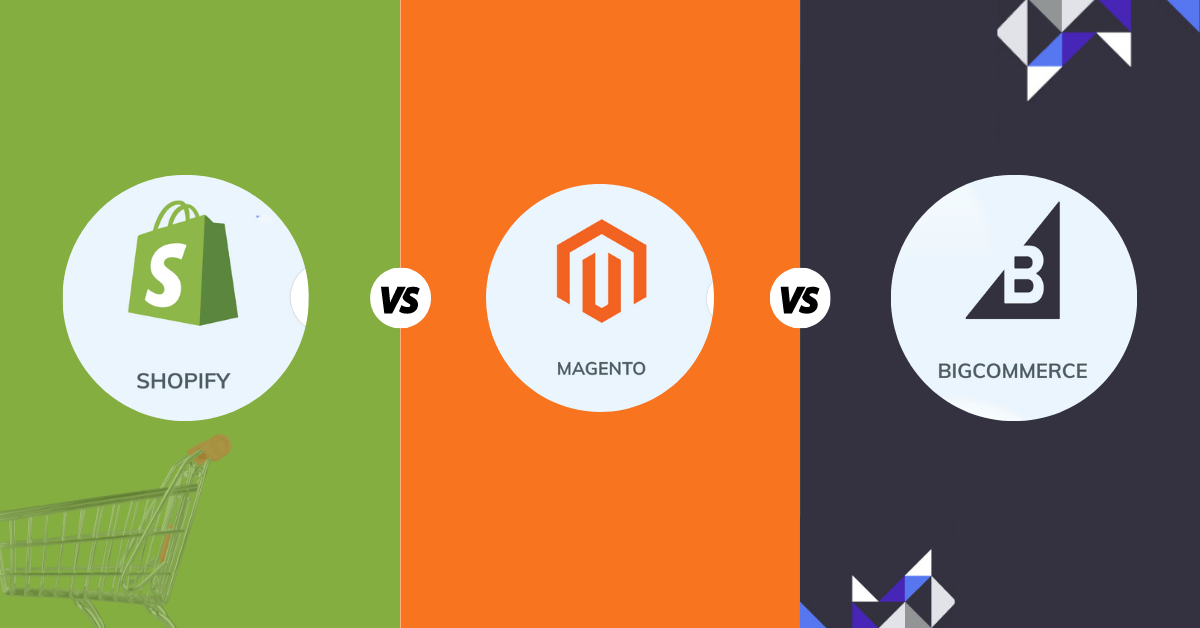When selecting an e-commerce platform, you decide your company’s future and its potential success. You can’t ‘guess’ and hope things will work out. You must be more opinionated and informed than ever before to avoid being influenced by marketers. An underpowered platform may hinder the development and growth of your brand.
When picking a platform, you should think about several things. Store owners have several concerns regarding e-store performance and user experience.
Why Picking The Right E-commerce Platform Is Critical?
Today’s e-commerce is much more complicated. Consumers now have a more comprehensive range of options, while businesses must choose from various technologies. Perhaps the most significant among those in which core e-commerce platform technology must be selected to establish their businesses.
To get the most out of an e-commerce venture, you’ll want to use the most refined platform for your website. With so many bloggers and marketers comparing platforms like Magento vs Shopify vs BigCommerce, Magento vs WooCommerce, and so on, it’s easy to become overwhelmed by the options available.
Let’s start by determining what makes Magento, Shopify, and BigCommerce the top choices for e-commerce businesses and whether or not they genuinely address their problems.
Overview: Magento VS Shopify VS BigCommerce
The most often mistaken notion about Magento, Shopify, and BigCommerceare nearly identical. The reality is that while all three of them provide the same goal, they are pretty diverse in almost every way. This includes their basic architecture, payment choices, extension management, and other features.
Magento is a well-known e-commerce platform used by millions of people worldwide. Magento (being open source) offers a free edition (community) and a premium version (Enterprise), which was launched in 2007. The platform is highly adaptable, with many options for personalising an online store.
Customers are also using Shopify’s hosted solution, which has a growing user base and caters to the demands of businesses that aren’t particularly concerned with the technical details. To use Shopify, you must pay a monthly subscription fee to access the hosting infrastructure. On Shopify, you may create dynamic online stores in minutes.
On the other hand, Shopify is a hosted e-commerce solution. It’s for businesses that need a cost-effective e-commerce platform. BigCommerce ranks #9 in the e-commerce sector, and its user base is increasing steadily.
Head-to-Head Comparison
Control and Customization
Customisation and control are one of the most apparent and fundamental distinctions between Magento, BigCommerce, and Shopify.
Because Magento is self-hosted, you have complete authority over the servers and hosting you use. You also get a lot of design and operation customisation possibilities because it’s open-source. Without being restricted to a certain degree of connections, you may change and improve the store as required.
You needn’t worry about any of that with Shopify. It’s a hosted solution, so you don’t have to be an expert in software development. However, you can’t access the source code, making granular customisation at the store-level difficult.
There are numerous alternatives for Shopify. BigCommerce, a hosted e-commerce solution, is another excellent alternative. You’ll need to create an account and set up your website with them. This may limit your freedom because you won’t be able to customise anything. The benefit of a hosted platform is that the firm will take care of all hosting issues, so you can focus on growing the business.
Popularity
Magento, BigCommerce, and Shopify are three of the most well-known e-commerce platforms. According to a recent poll of the current state of the e-commerce industry, there are approximately 240,000 Shopify registered domains.
Magento, on the other hand, powers approximately 160,000 websites. BigCommerce runs 25,000 sites. However, a clear distinction between the websites that utilise these platforms is important.
Smaller online businesses are more likely to use Shopify owing to its creative and energetic marketing efforts. Its simplicity of use (often advertised feature) appeals to new and inexperienced e-commerce entrepreneurs.
A popular notion about Magento, a BigCommerce alternative, is that the platform is most appealing to medium and large-scale online businesses. However, Magento may be an outstanding choice for small online retailers looking for simple scalability in the future.
Small and mid-sized companies may also use BigCommerce to run their online shops without worrying about hosting difficulties. It has several options, although in most cases, it makes hosting simpler for small and medium-sized businesses on a tight budget.
Speed & Performance
For a business to succeed, it must have fast loading speeds and high performance. Users don’t like to wait too long for a website to load. This also applies to online retailers. If an online store isn’t fast enough or performs poorly, a customer is less likely to return for a second purchase or even convert in the first place.
Shopify is a hosted solution, so you won’t have to worry about the page loading speed or the overall performance of your e-commerce business when you’re using it. At the same time, you have little control over your hosting environment and server-level adjustments.
Finally, BigCommerce is another hosted platform. According to BuiltWith, BigCommerce deploys its websites on AWS hosting infrastructure, which is quick. However, since customers will not be able to customise their e-commerce platforms freely, they will not be able to promote their businesses freely. This may have a negative influence on future sales.
On the other hand, Magento is recognised for its strong performance and special performance-oriented modifications. Because it is a self-hosted system, you may customise your server to improve performance statistics. This involves utilising Magento-managed hosting with sophisticated technologies like caching and CDN to optimise performance.
Magento is divided into Open Source (formerly community edition) and Commerce (formerly enterprise edition). As the owner and operator, you must host your store with Open Source. According to Magento, Open Source allows you to meet the basic commerce needs as per present-day standards.
However, it does not imply that you are responsible for keeping the e-store available online. Your online store is hosted on the cloud by Magento Commerce. It provides you with peace of mind that your website will always be accessible. If hosting, web support, or e-commerce functionality are outside of your expertise, Magento can handle it for you.
User Friendliness
To compensate for the limitations in customisation, Shopify offers its merchants simplicity. With its simple tools and drag-and-drop user interface, you can quickly change the fundamental characteristics of your store.
Just like Shopify, BigCommerce is also a beginner-friendly e-commerce platform. You can set up your online store in minutes. Keep in mind that it does not allow for any customisation. As a result, if you want to include a pop-in, call to action (CTA), or a custom plugin, you won’t be able to.
The learning curve for Magento is rather steep. However, this is only intended to give merchants flexibility and allow for a wide range of customisation possibilities. Magento is quite adaptable but lacks in terms of user-friendliness. You can accomplish a lot with the platform if you have the necessary experience with Magento.
Payment Gateway Options
When it comes to allowing the customer, multiple payment gateway choices are one of the most crucial aspects. Shopify integrates a bespoke solution and several popular payment methods to simplify online payments.
BigCommerce also offers a variety of payment choices, including PayPal, Stripe, and Authorize.net, as well as other payment options such as Sage pay, Adyen, and others.
Magento also offers several modules and add-ons for integrating and setting up different payment options. You can find a variety of modules and add-ons that will help you configure and set up various payment solutions.
Customer Support
Both Shopify and BigCommerce have dedicated customer service and support. On the other hand, Magento has a community-based support system that includes experts, Magento certified individuals, and back-end and front-end developers. Magento is recognised for its extensive and helpful community that continues to expand and flourish.
You may always go to the Magento forums and discuss and share your concerns with other community members. You can also get help from a Magento partner organisation that assists with store creation, setup, and maintenance to advertising.
SEO and Marketing
From a search engine optimisation (SEO) and marketing standpoint, Magento vs BigCommerce vs Shopify provides a more comprehensive number of features and integrations with marketing tools to increase your investment ROI.
Shopify offers a limited number of SEO capabilities. For example, you may modify meta tags and optimise product and inventory pages. Furthermore, this platform supports more intricate optimisation, which entails changing the file structure to make navigating search crawlers easier. Shopify stores are self-hosted. Therefore there are some limits to what you can do to make your store more SEO-friendly.
As an e-commerce store owner, you don’t have to be concerned about this. You can use BigCommerce’s drag-and-drop interface to build a shop in minutes. It also has basic SEO capabilities such as MT, MD, keyword optimisation, etc. You may rapidly optimise your online store with ease.
However, if you want to use Magento to integrate and apply your custom SEO and digital marketing tactics, you will find it much easier than most e-commerce platforms. It allows you to fine-tune the appearance of your store and the content strategy for greater effectiveness. Because Magento is open-source software, it will enable better SEO optimisation via server-level configuration.
Magento Vs Shopify Vs BigCommerce Comparison
| Features | Magento | Shopify | BigCommerce |
| Price | Free | Starts from $29 | Starts from $29 |
| Scalability | Unlimited | Limited | Limited |
| Market share | 10% | 19% | 1% |
| Customisation | Unlimited | Limited | Limited |
| User Friendliness | Yes | Yes | Yes |
| Performance | Self-hosted | Hosted | Hosted |
| Payment Gateway | Unlimited | Limited | Limited |
| Themes | Free & Paid | Free & Paid | Free & Paid |
| Addons | Free & Paid | Paid | Paid |
| SEO/Marketing | Yes | Yes | Yes |
| Customer Support | No | Yes | Yes |
| Inventory Management | Unlimited | Limited | Limited |
Which Platform Will You Choose?
The current three major platforms have valuable tools for businesses and retailers, considerable scalability, and a wide range of customer experience choices.
If you have sophisticated requirements and legacy system integration needs, Magento might be the solution. Shopify may be the answer if you’re getting started or have a clear route and are willing to pay fees for payment flexibility and knowledge of extensions. BigCommerce is most likely the alternative you’re searching for if you’re a brand eager to expand.
Choose wisely for uninterrupted growth!













